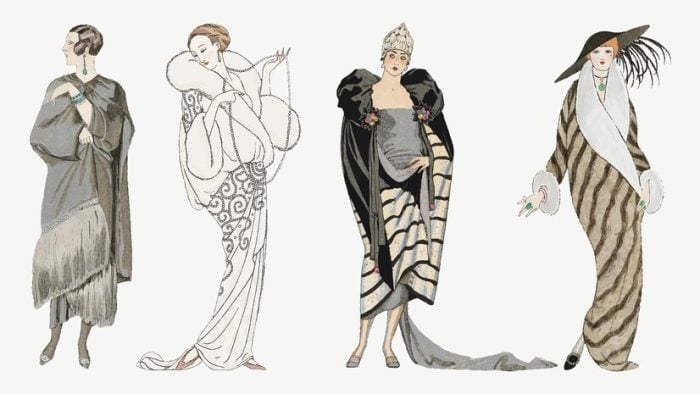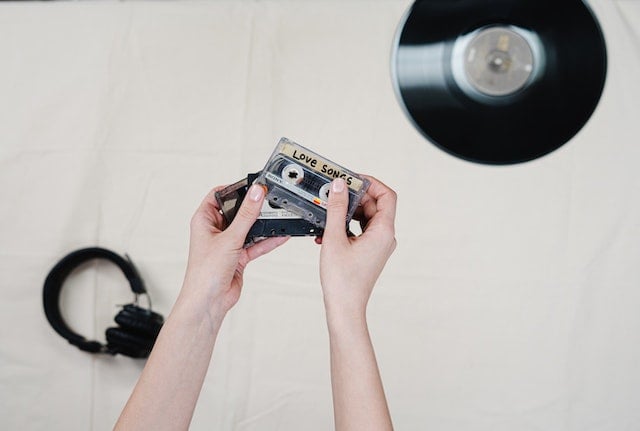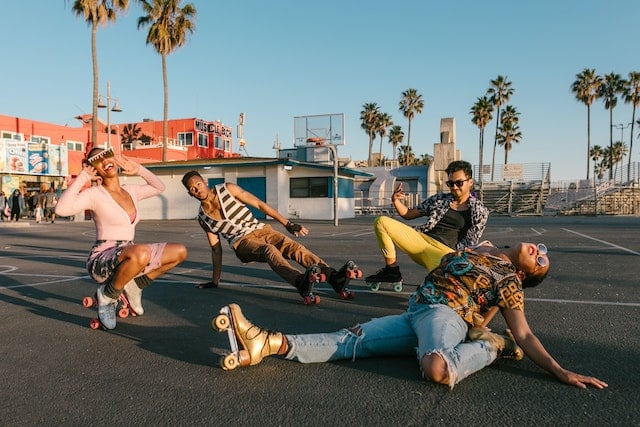The Evolution of English Slang
Language is a dynamic phenomenon that evolves over time as societies change. The way we speak, the words we use, and the meaning behind them all shift as we develop new technologies, ideas, and social norms. Some English slang words that were commonly used just a few decades ago are now considered outdated or even offensive.
On the other hand, new terms emerge to describe the latest trends and developments in society. In this article, we will take a look at the evolution of
English slang over the past 100 years to show you what a powerful, flexible machine the English language is!
Table of Contents
→Sign Up Now: Free Trial English Lesson With a Native Teacher!←
English Slang in the 1920s
The 1920s, also known as the “Roaring Twenties,” was a time of great change in North America. People were enjoying newfound freedom after the end of World War I, and this was reflected in the slang they used. Some popular slang terms from the 1920s include:
- Bee’s knees — Something or someone that is considered excellent or impressive
- The Big One / The Big Sleep —Death
- Canary — A woman singer
- Cat’s Pajamas, as in “I think yer the cat’s pajamas” — Term of endearment that used to mean “I think you are really really cool”.
- Daisy — Pejorative slang of the 1920s man to refer to a man that is not very masculine.
- To be dizzy in love with a dame — To be madly in love with a girl or woman.
- Duck soup —A piece of cake
- Hack — Taxi
- A half — 50 cents
- Head doctor — Psychiatrist
- Horn — Slang of the 1920s for telephone
- In stir — In prision
- Kisser — Mouth
- Lousy with — To have a lot of something
- Have a smell from the barrel — Have a drink
- Speakeasy —An illicit bar selling bootleg liquor.

Image via Freepik
English Slang of the 1950s
The 1950s were a time of post-World War II prosperity, with new technologies and cultural developments shaping society. Though this decade was much more conservative than the 1920s from a social perspective, it also saw the rise of popular culture, which had a profound effect on language. For instance, popular terms such as ‘cool’ and ‘daddy-o’ became widely used throughout the decade.
Here are a few examples of essential slang of the 1950s:
- An ankle biter —A mischievous child
- Cool cat — A person who is considered cool or fashionable.
- Cruisin’ for a bruisin’ — Looking for trouble
- Dibs — A claim of ownership, often used when calling “shotgun” in a car.
- Greaser — A young person that belonged to a subculture characterized by a slicked-back hairstyle
- A Passion Pit — A drive-in movie theater
- Turkey — A stupid or useless person
Ville
Much of the slang of the 1950s was formed through a very simple procedure: adding the suffix -ville to a noun to describe an imaginary place:
Antsville — A place so densely populated that it made you think of an anthill.
Coolsville — A venue full of ‘cool cats’.
Deadsville — A boring or unpopular place.
Weirdsville — A place full of uncool or weird people.
English Slang of the 80s
The 1980s were a time of great social and cultural change. It was an era when technology was rapidly advancing, bold fashion trends were being established, and people from all walks of life had more opportunities than ever before.
In addition, this decade saw the advent of MTV, the rise of hip-hop music, the emergence of video games as a popular form of entertainment, and a whole new slew of slang words that would become part of everyday language for years to come!
From ‘rad’ to ‘veg out’, here are some examples of slang of the 80s:
- Big whoop — Big deal (used ironically)
- Buff — A word used to talk about a man who has a muscular body
- Gag me with a spoon —An expression of disgust, often used in response to something unappealing or cringey.
- Gnarly — Depending on the context, awesome/amazing or disgusting.
- Eat my shorts! — A not-very-polite phrase to tell someone to stop bothering you or leave you alone.
- Rad — Short for “radical,” meaning something or someone that is cool, impressive, or exciting.
- Homeboy, homegirl, homie, etc: — Slang of the 80s (still used today) to talk about a person who grew up in the same place as you.
- Take a Chill Pill: Relax! (This phrase originated on college campuses in the early ‘80s.)
- Vegging out: Relaxing and doing nothing

Image via Pexels
English Slang of the 1990s
From colorful fashions like stonewashed jeans, neon windbreakers, and bright-colored scrunchies to iconic films such as Titanic and Jurassic Park – it’s no surprise that pop culture had an immense influence on life in the 90s.
In addition to pop culture references, technology began playing an increasingly important role in day-to-day life as well with many people owning home computers for both work purposes and leisure activities like gaming or chatting online with friends via AOL Instant Messenger (AIM), something that is reflected in language usage.
Some popular slang terms from the 1990s include:
- As if — An expression of disbelief or skepticism.
- Buzzkill — Someone or something that damps the mood.
- My bad — A term used to acknowledge you did something wrong.
- Phat — A term used to describe something as cool or impressive.
- So sue me! — A phrase said in a defiant manner, implying that you don’t care about the consequences of your actions.
- Talk to the hand! — An expression meaning “I’m not listening”.
- Tubular — Used to describe something as awesome or cool.
- Wigging out — To become overwhelmed with excitement or emotion.
- Trippin’ — Slang of the 90s to talk about someone who goes over the top or acts crazy.
- Whatever! — Used to express indifference or dismissiveness.
Slang of the 90s: Hollywood Edition
The 1990s was a great decade for family movies. From classics like Home Alone and The Lion King to masterpieces like Pulp Fiction and The Matrix, the decade was a time of great creativity in Hollywood. Below are some movie quotes from the 1990s that became popular slang terms and are still used today. If you are friends with any native speakers of English, it’s very likely you’ve heard at least one of these before!
- “Hasta la vista, baby!” — Spoken by Arnold Schwarzenegger in Terminator 2: Judgement Day, this phrase became a way of saying goodbye.
- “Hakuna Matata” — A phrase from The Lion King meaning “no worries”.
- “Show me the money!” — Spoken by Tom Cruise in Jerry Maguire, this phrase became a way of expressing enthusiasm or excitement.
- “I’m the king of the world!” — Spoken by Leonardo DiCaprio in Titanic, this phrase became a way of expressing joy or pride.
- “The first rule of Fight Club is: you do not talk about Fight Club.” — Spoken by Brad Pitt in Fight Club, this phrase became a way of saying “you must keep something secret”.
21st Century: English Slang Today
The 2000s saw the rise of social media, smartphones, and a focus on self-expression. One of the main characteristics of North American society is its multiculturalism, with people from various backgrounds and ethnicities living together. At the same time, there is also a growing awareness of social justice and inclusivity, with movements and discussions around race, gender, and sexual orientation becoming more prominent.

Image via Pexels
Today, English slang continues to evolve at a rapid pace, as social media and the internet allow for the instantaneous sharing of new words and phrases.
Some popular slang terms from this era include:
- Ally — Someone who supports and advocates for the rights and equality of people in marginalized communities, especially LGBTQ+ individuals.
- Bae — A significant other or a crush.
- Extra — Means over-the-top or excessive.
- FOMO — Stands for “fear of missing out,” which means the anxiety or unease caused by the idea of missing out on something.
- Ghosting —The act of abruptly ending communication with someone without explanation or notice.
- Gaslighting — To manipulate another person into doubting their own judgment or understanding of events
- Lit — Refers to something that is exciting or cool.
- On fleek — Something is perfect or flawless.
- Queer — Someone who identifies as part of the LGBTQ+ community, or to something that is non-conforming or outside the norm.
- Salty — Upset, bitter, or resentful.
- Squad — Refers to a close group of friends or associates.
- Sus — short for “suspicious,” referring to something that seems questionable or sketchy.
- Swag — A sense of style, confidence, or attitude.
- Throw shade — Make subtle or indirect insults or criticisms.
- Thirsty — Someone who is desperate or eager for attention, validation, or affection.
- Troll — Someone who deliberately posts provocative or offensive comments online to elicit strong reactions from others.
- Tweakin’ — Refers to someone acting strangely or erratically, often because of drug use.
- YOLO — Stands for “you only live once,” which is a way of saying that you should make the most of life because it is short.
→Sign Up Now: Free Trial English Lesson With a Native Teacher!←
In conclusion, English slang has evolved drastically over the past 100 years, reflecting the changing culture and societal developments of each era. While some slang terms have become outdated and lost their popularity, others have become part of the mainstream lexicon.
I don’t know about you, but we are definitely excited to see how English slang continues to evolve in the years to come!
Would you like to keep up-to-date with the latest slang terms in the English language? At Language Trainers, we offer tailor-made English courses taught by native teachers in a fun and relaxed way. Instead of relying on old textbooks and outdated materials, our classes are up-to-date with the latest expressions used in everyday life! Contact us today to start learning English and embracing English slang in its full glory.
